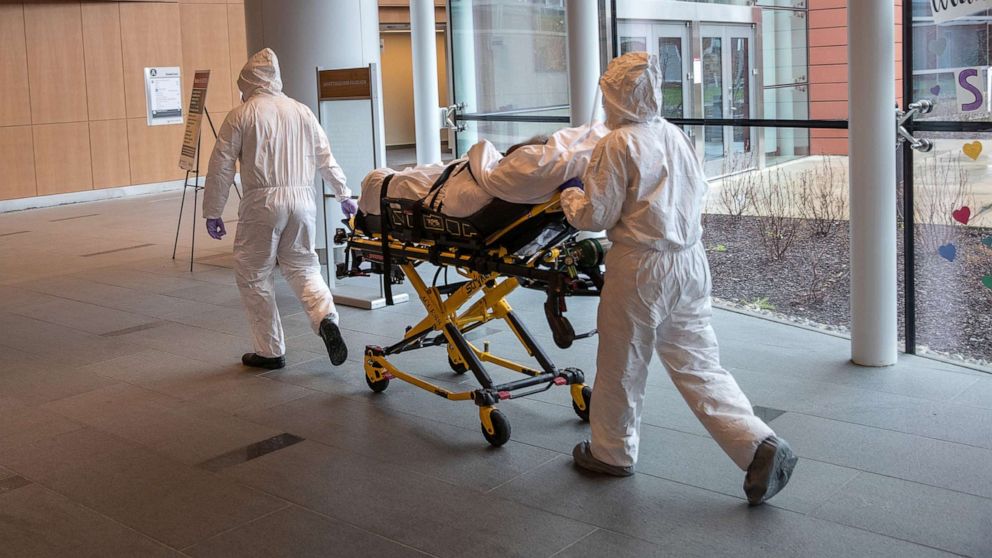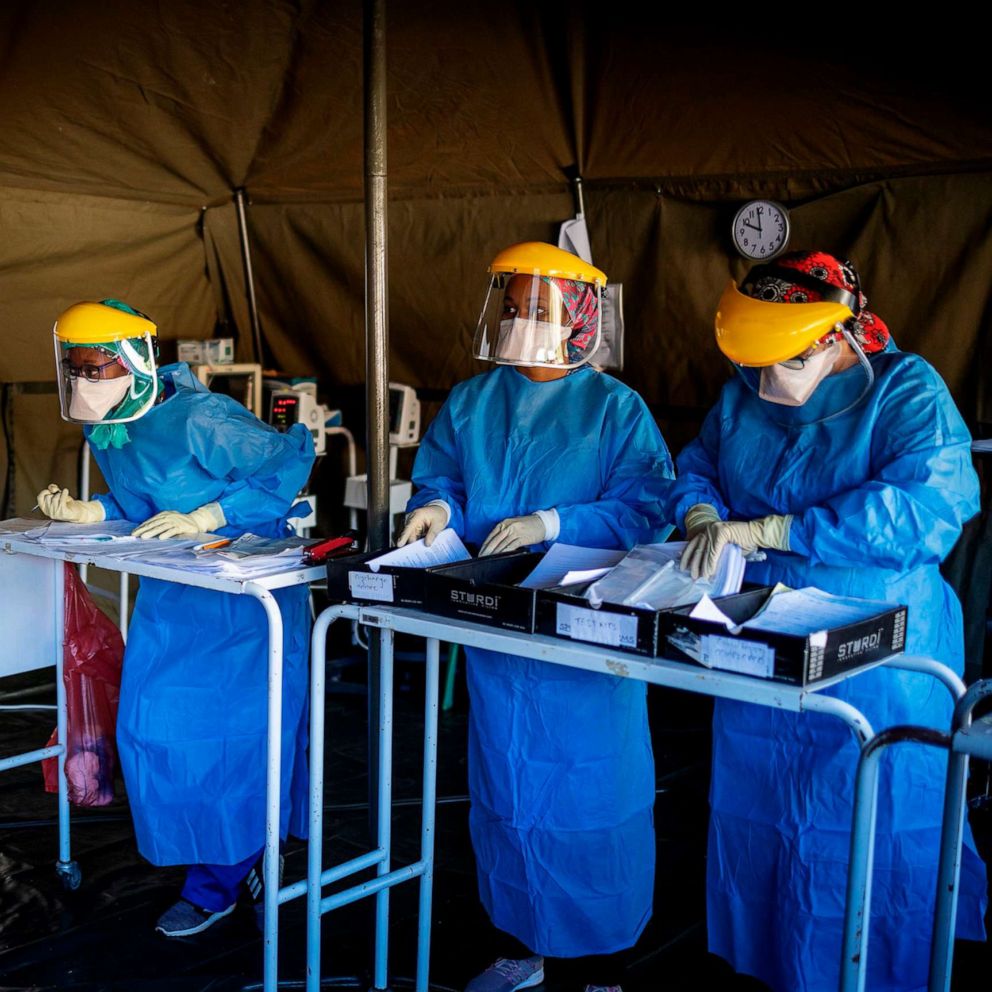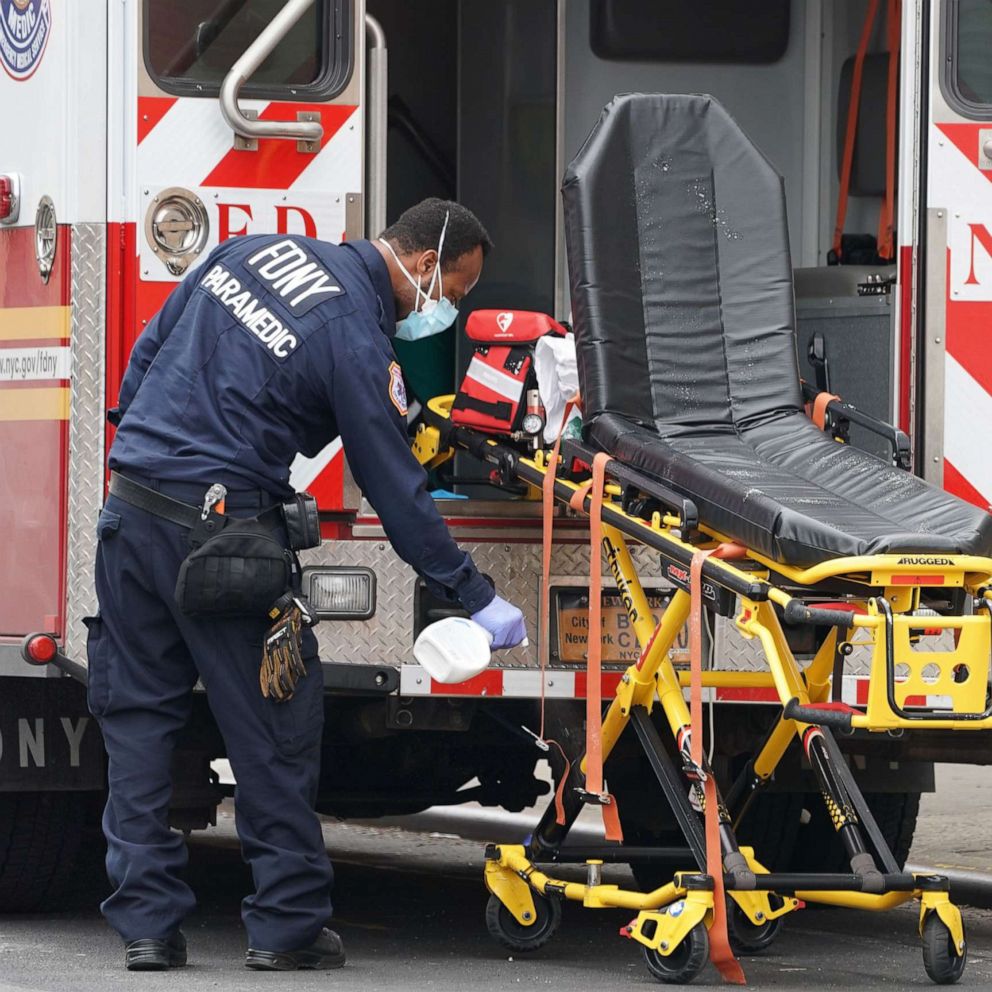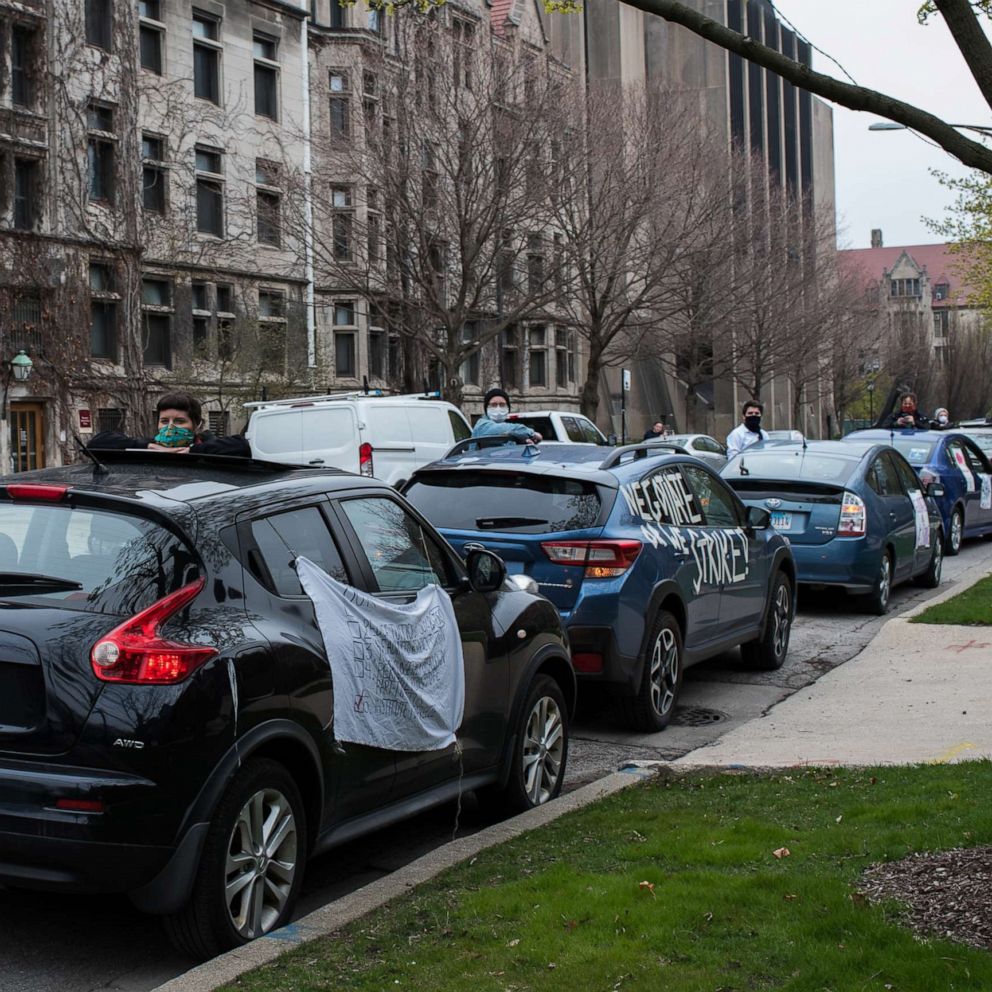At coronavirus epicenter, 28 NYC schoolteachers have died from the virus
A pandemic of the novel coronavirus has now killed more than 210,000 people worldwide.
More than 3 million people across the globe have been diagnosed with COVID-19, the disease caused by the new respiratory virus, according to data compiled by the Center for Systems Science and Engineering at Johns Hopkins University. The actual numbers are believed to be much higher due to testing shortages, many unreported cases and suspicions that some governments are hiding the scope of their nations' outbreaks.
Since the first cases were detected in China in December, the United States has become the worst-affected country, with more than 985,000 diagnosed cases and at least 55,906 deaths.
Tune into ABC at 1 p.m. ET and ABC News Live at 4 p.m. ET every weekday for special coverage of the novel coronavirus with the full ABC News team, including the latest news, context and analysis.
Monday's biggest developments:
Here's how the news developed Monday. All times Eastern.
7:43 p.m: CDC updates COVID-19 testing priorities
The CDC has announced revised guidelines for COVID-19 testing.
Per the CDC, high priorities for testing include hospitalized patients, health care facility workers and first responders with symptoms, and residents in long-term care facilities with symptoms.
Those with symptoms of potential COVID-19 infection, as well as asymptomatic people identified by public health screening and monitoring, are also a priority for testing.
The full testing criteria can be found on the CDC's website.
6:51 p.m: Washington state parks to start reopening May 5
Washington state will reopen some outdoor recreation on May 5, Gov. Jay Inslee announced.
State parks, state lands, state fish and wildlife areas and golf courses will be allowed to reopen for day use.
Only groups of two people, or four if they are from the same household, can play golf together.
Public gatherings, team sports and camping remain prohibited.
Local jurisdictions could still maintain stricter orders, the governor said.
Washington's stay-at-home order is in effect through May 4.
5:45 p.m: Gov. Newsom chastises California beachgoers
California Gov. Gavin Newsom had a few words for beachgoers in Orange and Ventura counties.
"This virus doesn't take the weekends off," Newsom said at his daily press briefing Monday, responding to images of weekend crowds at the county beaches.
He later addressed beachgoers again, saying, "Who does that? You're so close."
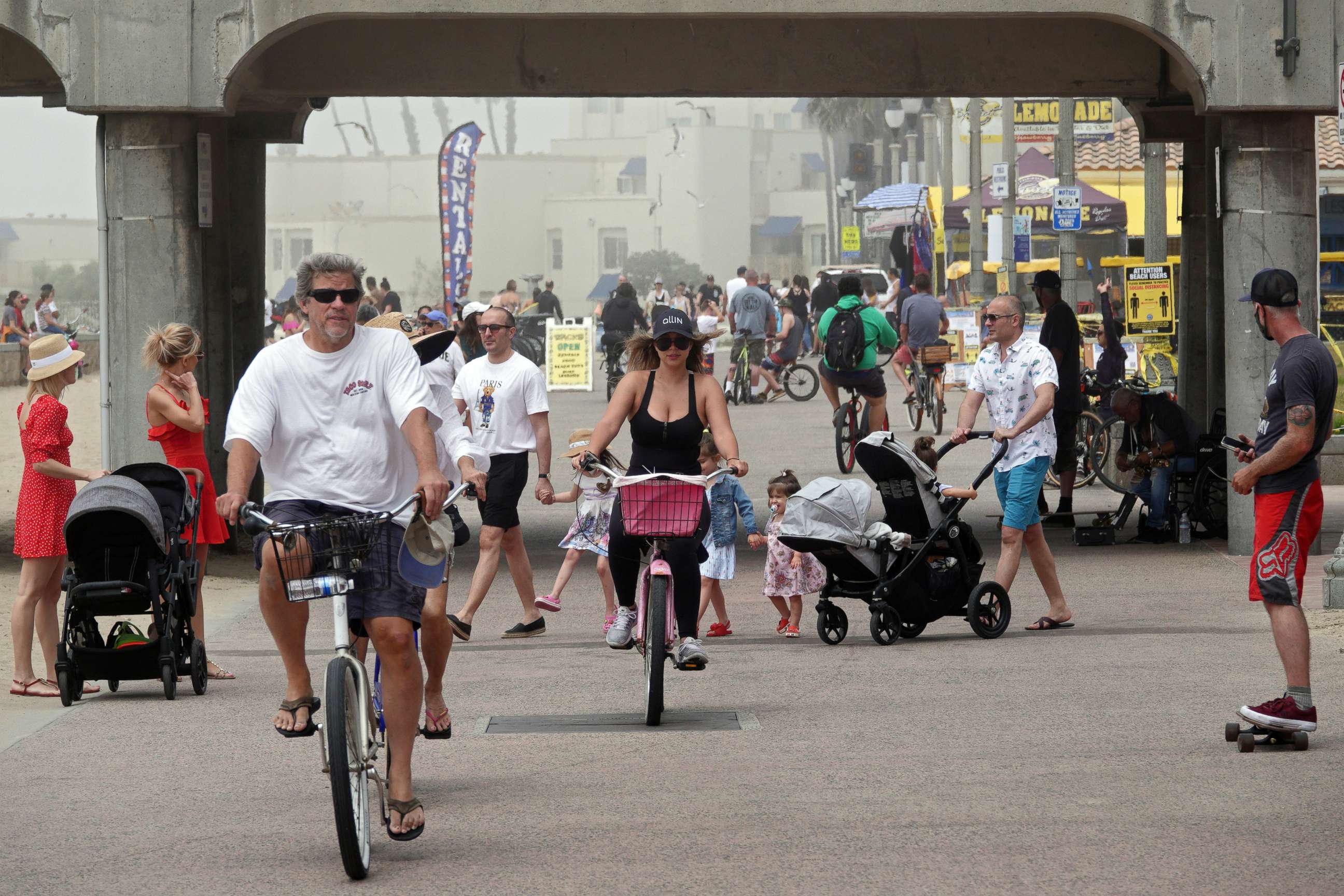
Newsom said the state is "just a few weeks away" from making changes to California's stay-at-home order, and these behaviors "will set us back."
California's stay-at-home order is in effect indefinitely. Beach openings vary by county and city.
Ventura County has "soft closures" at local beaches, with sunbathing, chairs and umbrellas prohibited. Orange County has some restrictions to beach access and parking.
All Los Angeles County beaches are closed. San Diego County beaches were closed over the weekend, but some reopened Monday.
5:05 p.m.: 68 NYC DOE employees have died from COVID-19
The New York City Department of Education has lost 68 employees to COVID-19 as of Monday, the department said.
That includes 28 teachers, 25 paraprofessionals, three central office employees, two administrators, two guidance counselors and two food service staffers.
New York City schools will be closed for the rest of this school year, with students learning remotely instead. Free meals will remain available for students who need them.
3:45 p.m.: NBA workouts eyed for May 8 start
NBA players might be able to suit up for workouts after May 8, the league announced Monday.
Per new rules, should workouts be allowed after the new earliest target date, no more than four players would be allowed at a facility at once, no coaches could participate and players would be prohibited from using non-team facilities such as public health clubs and gyms. Group activity, including practices and scrimmages, would not be allowed, the NBA said.
The possibility of opening limited workouts only applies to players in cities that are not subject to government restrictions. The May 8 date will be pushed back if warranted.
The NBA indefinitely suspended the season in March after a player on the Utah Jazz preliminarily tested positive for COVID-19.
2:56 p.m.: Ohio governor reveals reopening plan
Ohio Gov. Mike DeWine revealed the plan to reopen his state starting on Friday.
The rollout will begin with three phases, the first being non-elective medical procedures, dentist offices and vets. On May 4, manufacturing, distribution and construction will be allowed to resume.
General office work would also be allowed to continue, but DeWine encouraged those businesses to work remotely if they can.
There are strict rules in place for those businesses including mandatory face coverings for all employees, mandatory daily health assessments, multiple cleanings during the day and a limit of 50% of fire-code capacity for each workplace, according to the governor's office.
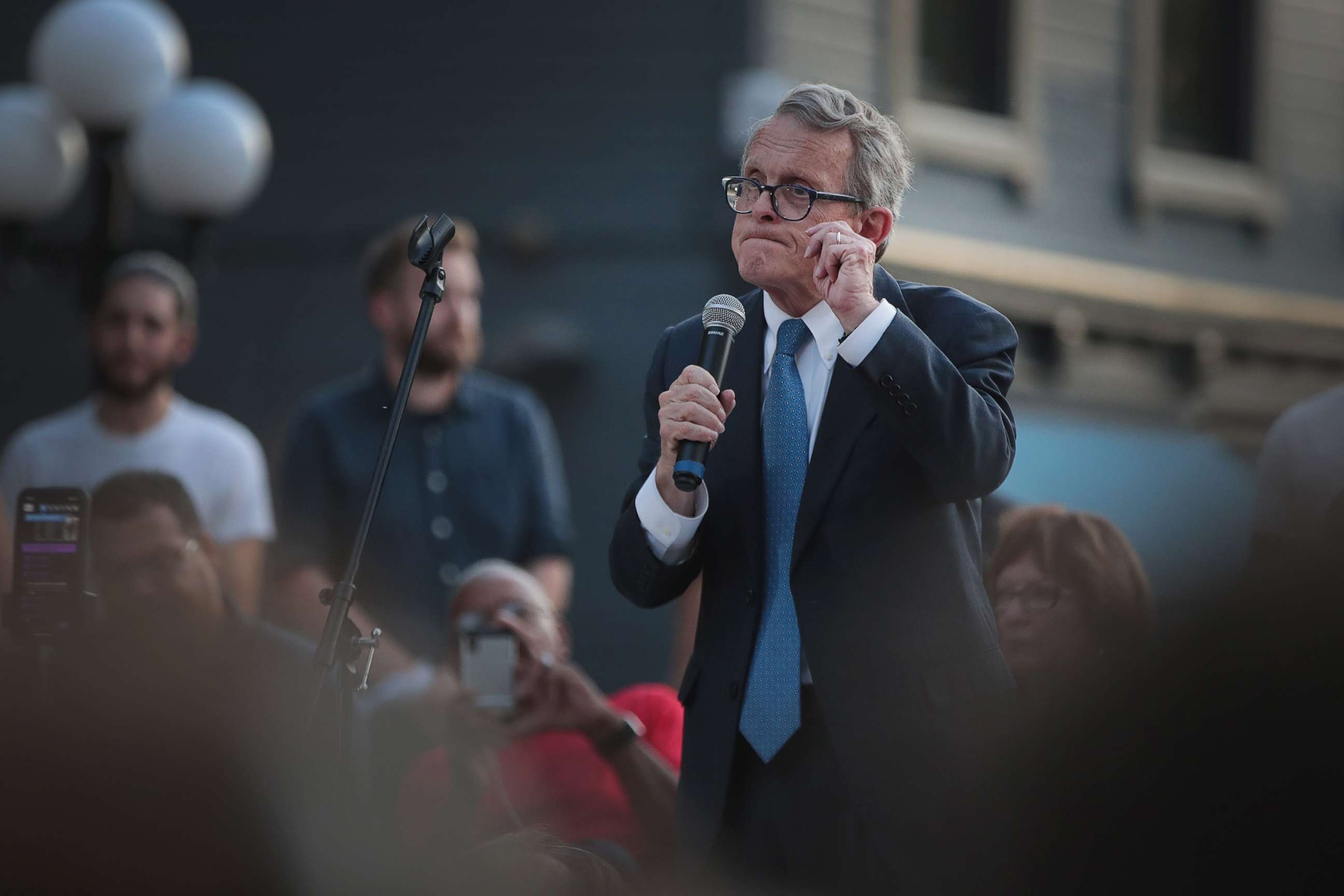
If an employee gets sick, the employer must alert the state health department and shut down the business for deep sanitation, if possible, DeWine said.
On May 12, the governor will allow retail to reopen, however workers and customers must wear facial coverings. DeWine said his stay-at-home order will remain in effect, and gatherings of 10 or more people are prohibited.
2:12 p.m.: Massachusetts cases plateauing: Governor
Massachusetts Gov. Charlie Baker said the number of cases in his state appears to be plateauing, but cautioned that it is "very much still in the fight against COVID-19."
The Massachusetts Health Department said there were 1,590 newly recorded cases on Sunday and 169 newly reported fatalities. As of Monday, the state had 54,938 confirmed cases and 2,899 total deaths, the state health department said.
"The flatness of the flat curve basically means it's been riding up like this for a while, it seems to have plateaued depending upon which part of Massachusetts you are in," Baker said during his briefing Monday.
The state's stay-at-home order ends on May 4, and Baker said he would have more information about his plan to reopen Massachusetts later in the week. He did caution that the situation was different from other states in the country that have already reopened.
"I’m not surprised they’re starting to think pretty hard about reopening. For them the surge was nothing like it was in the Northeast," he said.
1:01 p.m.: Cuomo says some NY counties may be ready to open on May 15
New York Gov. Andrew Cuomo said that he will likely be extending the shelter-in-place orders for several counties past the state's current May 15 deadline.
"In some regions you could make the cause that you could un-pause in other parts of the state," he said during his daily briefing.
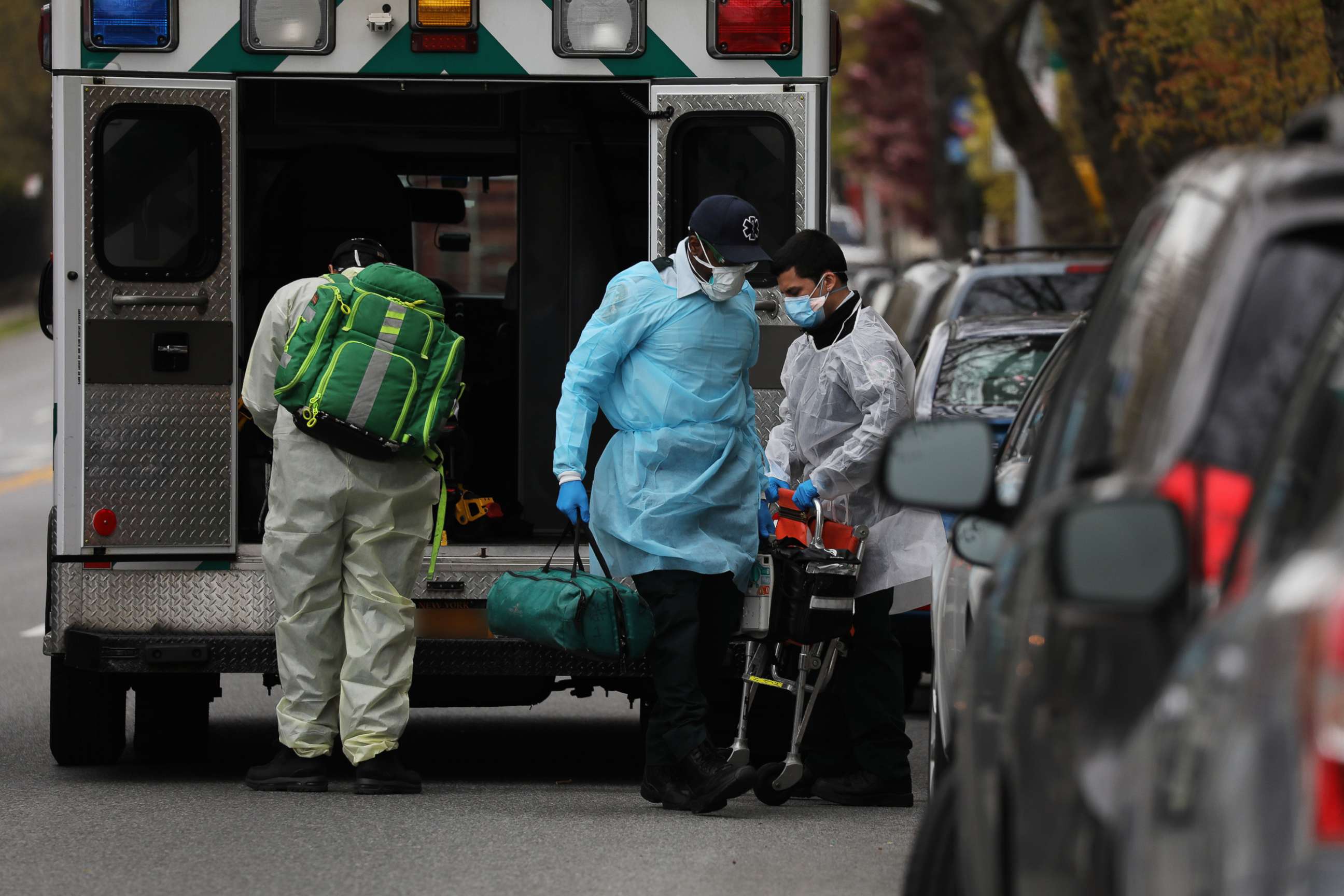
The number of new coronavirus-related hospitalizations is around 1,000 a day, according to the state's data. There were 337 new deaths recorded on Sunday, bringing the total number of New York COVID-19 fatalities to 17,303, according to the state data.
Cuomo reiterated that the state needed to do more testing and contact tracing in order to properly open parts of the state.
12:20 p.m.: New York cancels presidential primary
New York State's Board of Elections voted to drop the presidential primary that was initially postponed to June 23.
The board's Democratic members voted during a phone meeting and said it was costly to hold the election after Sen. Bernie Sanders dropped out of the race and endorsed former Vice President Joe Biden. Sanders had pushed for the primary to continue and urged the board to keep the date and find alternatives to in-person voting.
"What the Sanders supporters want is essentially a beauty contest, that given the situation with the public health emergency that exists now, seems to be unnecessary and indeed frivolous," Doug Kellner, a Democratic commissioner for the BOE said.
New York became the first state to not hold its presidential primary this year. The state's Republicans canceled their presidential primary in February since the president was the only person on the ballot.
BOE Democratic commissioner Andrew Spano said he was concerned about people jeopardizing their health by going to the polls.
"I've come to the conclusion that we should minimize the number of people on the ballot, minimize the election for the protection of everybody," he said.
When asked about the decision, New York Gov. Andrew Cuomo said he would defer to the election board.
"I’m not going to second guess the board of elections. I know there are a number of election employees who are nervous about conducting an election but I’ll leave it up to the board of elections," he said during his daily briefing.
Special elections in select New York counties that are slated for June 23 will still go on, and all voters will have a chance to vote via absentee ballots, according to the board of elections.
10:41 a.m.: NYC to open up 40 miles of streets to pedestrians, will hire 1,000 disease detectives
New York City Mayor Bill de Blasio announced that he and the city council came to an agreement over a plan that would shut down 40 miles of streets to vehicular traffic and give people more free space as the weather gets warmer.
De Blasio said during his daily briefing on Monday that there has been concern about big crowds gathering in parks and said it was sensible to spread them out. The mayor said that he is committed to opening up to 100 miles of streets to pedestrians if need be.
"The focus here will be on ... where the need is greatest. There are so many communities that have been hardest hit by COVID," he said.
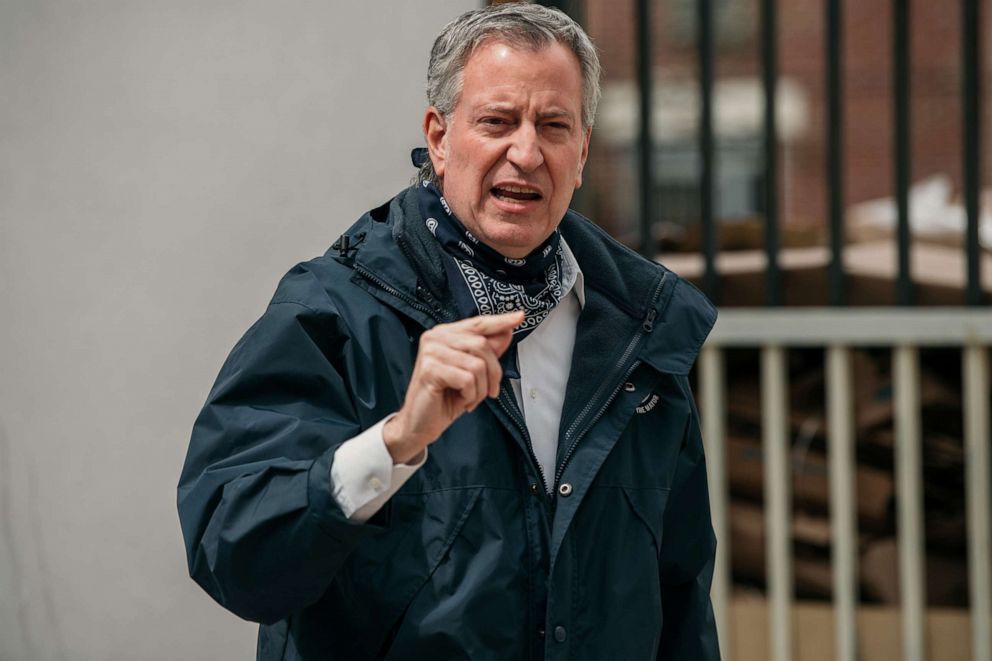
The exact locations will be determined by the mayor's office, city council, police and transportation department, and de Blasio said one of the locations eyed for the program are the streets near parks.
"We will capture the natural flow of people," he said "One of the most important places to open is where people are going anyways."
The mayor also announced that the city will hire 1,000 contact tracers, or disease detectives, to help with the city's coronavirus response. He called on any medical worker with relevant experience to apply at the city's Fund for Public Health's website
"If you had experience in health care field, if you want to lend your talents to the fight, we need you immediately," de Blasio said.
9:27 a.m.: Russian military reports over 2,000 positive cases
The Russian military has reported more than 2,000 cases of COVID-19 among its servicemen, civilian employees and cadets.
Russia's Ministry of Defense revealed on Sunday night that at least 874 military servicemen and 245 civilian employees have tested positive for the disease.
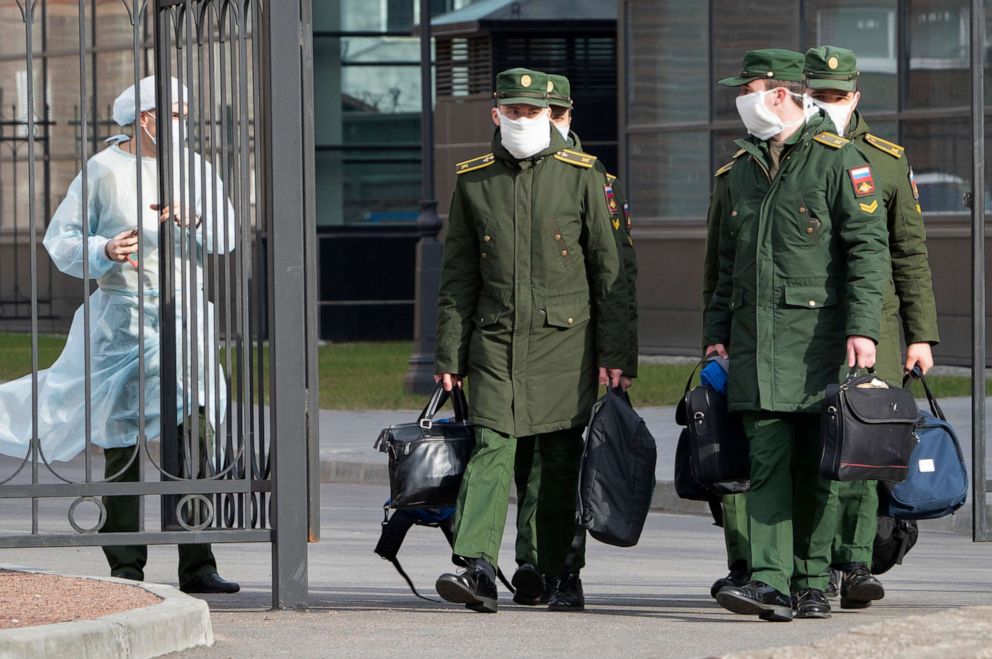
Another 971 positive cases were found among cadets and teachers at military schools across the country, according to the defense ministry.
More than 87,000 people in Russia have been diagnosed with COVID-19, and at least 794 of them have died, according to a count kept by Johns Hopkins University.
8:04 a.m.: USNS Comfort getting ready to depart New York City
The U.S. Navy is planning for its hospital ship to depart New York City on Thursday and return to the naval base in Norfolk, Virginia.
The USNS Comfort has been docked in the city for weeks to help area hospitals with the influx of patients amid the coronavirus pandemic. Medical staff were seen aboard the naval hospital ship Monday morning, breaking down the medical stations and taking inventory.
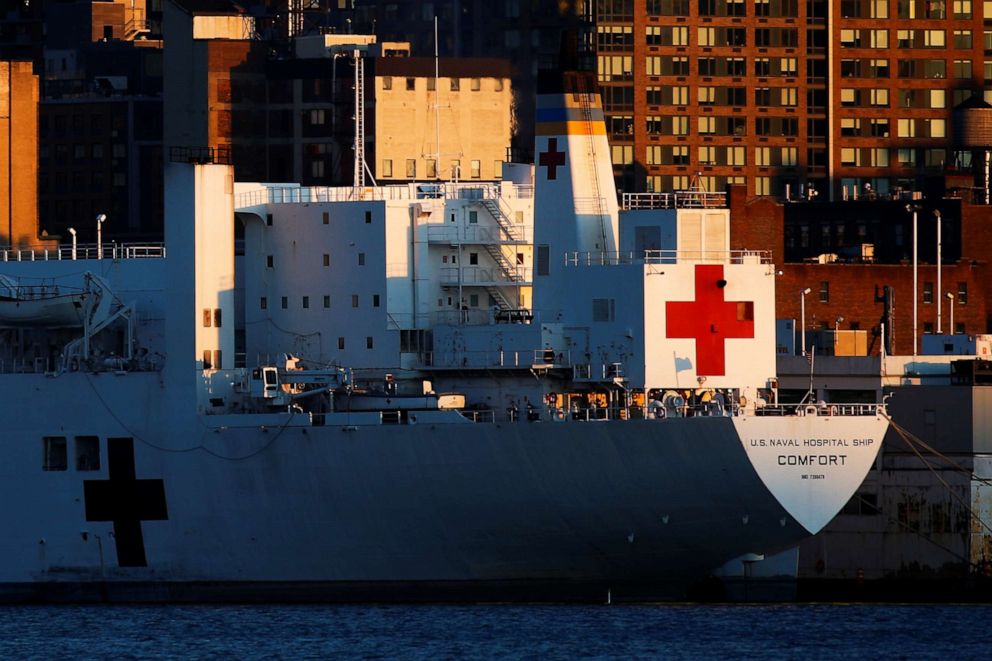
Before the vessel can depart, Navy officials must go through a checklist and make sure everything is functioning. Weather could also be a determining factor on whether the ship can leave Thursday.
Medical personnel who worked in the ship's coronavirus ward will begin their 14-day isolation on board. It's unclear where they will continue isolating once the ship arrives back in Norfolk.
7:12 a.m.: Volkswagen reopens Europe's largest car factory after coronavirus shutdown
Volkswagen, the world's largest automaker by sales, resumed production at its biggest factory on Monday.
Some 8,000 employees returned to the plant in the northern German city of Wolfsburg, the largest car factory in Europe, with "significantly expanded" measures to protect the health of the company's workforce, according to a press release from Volkswagen.
The company said it expects some 1,400 cars to have been built at the Wolfsburg plant by the end of this week. Next week, production will ramp up to more than 6,000 vehicles -- approximately 40% of production prior to the start of the coronavirus pandemic.
"Step-by-step resumption of production is an important signal for the workforce, dealerships, suppliers and the wider economy," Ralf Brandstaetter, chief operating officer of the Volkswagen Passenger Cars brand, said in a statement Monday. "In terms of managing the crisis, though, this is just the first step. Additional momentum is needed to stimulate demand in Germany and throughout Europe so that production volumes can be successively increased."
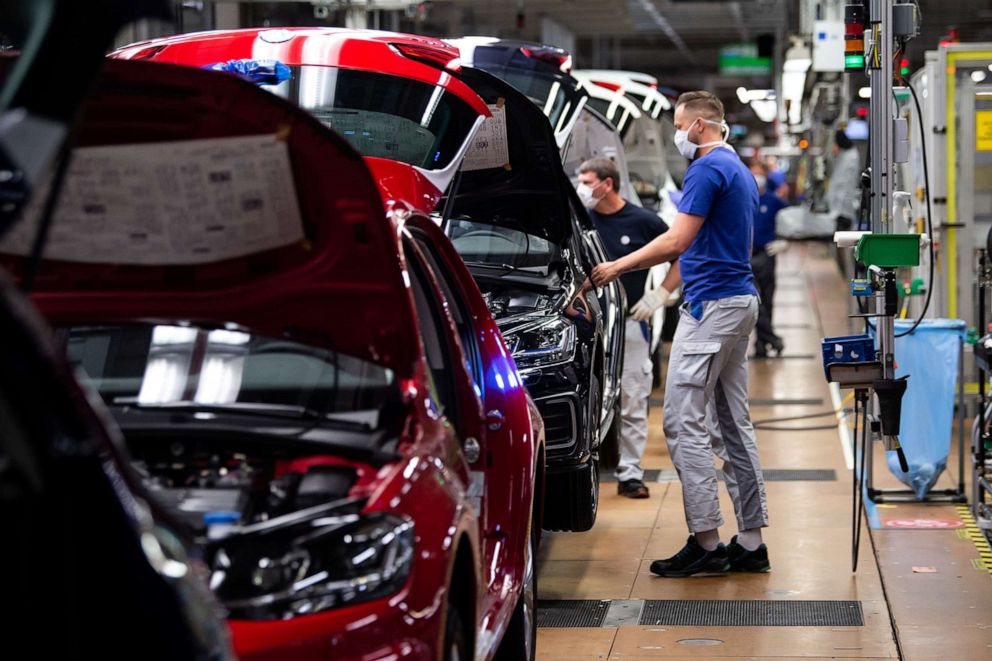
Volkswagen said it has imposed new measures at the factory for hygiene and physical distancing. Employees are expected to take their temperatures at home every morning and go through a health checklist before they leave for work. Walkway diversions have been set up at the plant to avoid contacts, while markers on the floors will help employees maintain a 1.5-meter distance from one another. Face masks must be worn in areas where this is not possible.
The company said employees are also being given more time to disinfect their tools, and several hundred additional hand-washing facilities are being installed throughout the Wolfsburg plant.
Volkswagen was forced to halt production at the factory and several others in mid-March due to the coronavirus pandemic.
6:27 a.m.: France reports major drop in daily death toll
France has reported a major drop in its daily death toll from the novel coronavirus.
The European country recorded 242 more deaths on Sunday, down from 369 new deaths the previous day, bringing the national tally to 22,856, according to health officials.
The number of new deaths that occurred in hospitals -- 152 -- was the lowest daily toll so far in the country's battle against the outbreak.
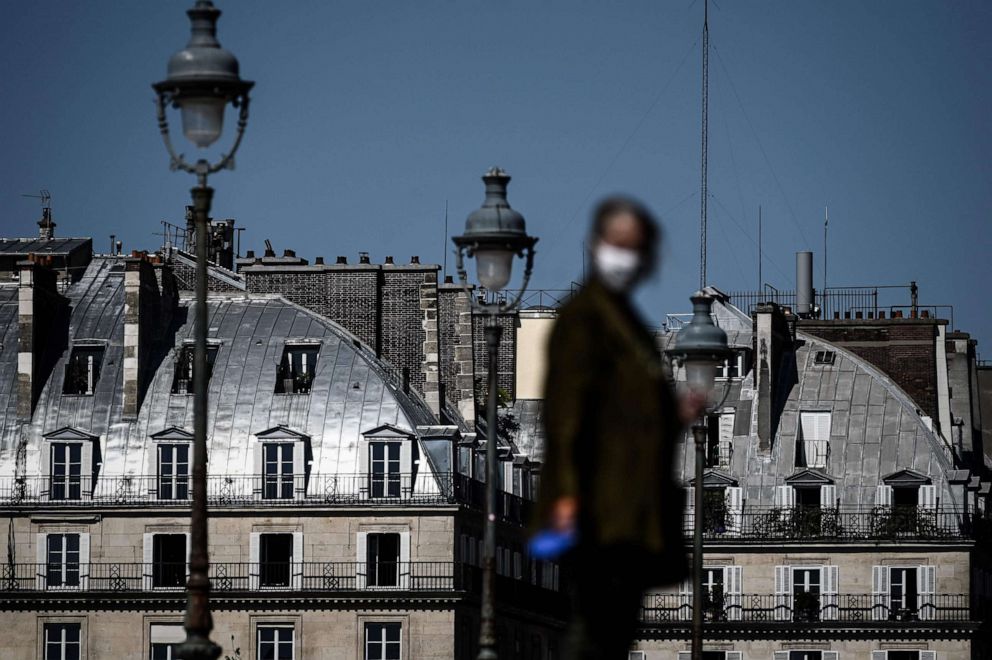
France is one of the worst-affected countries in the coronavirus pandemic, with more than 162,000 diagnosed cases of COVID-19, according to a count kept by Johns Hopkins University.
The country and several others in Europe are preparing to loosen restrictions after several weeks of total lockdowns.
What to know about coronavirus:
- How it started and how to protect yourself: Coronavirus explained
- What to do if you have symptoms: Coronavirus symptoms
- Tracking the spread in the U.S. and worldwide: Coronavirus map
6:08 a.m.: Italy unveils plan for life after lockdown
Italian Prime Minister Giuseppe Conte laid out a plan on Sunday night for gradually easing restrictions across the country after seven weeks of lockdown.
Construction sites, factories and wholesale supply businesses can resume work Monday or as soon as they implement safety measures against the novel coronavirus, Conte said.
Starting May 4, parks will reopen, people will be allowed to visit relatives within the same region, restaurants can provide takeaway services and athletes will be able to resume training for individual sports. However, Conte insisted that social distancing must remain at all times and large gatherings will not be permitted.
"If you love Italy, keep your distance," Conte said in a televised address to the nation on Sunday night.
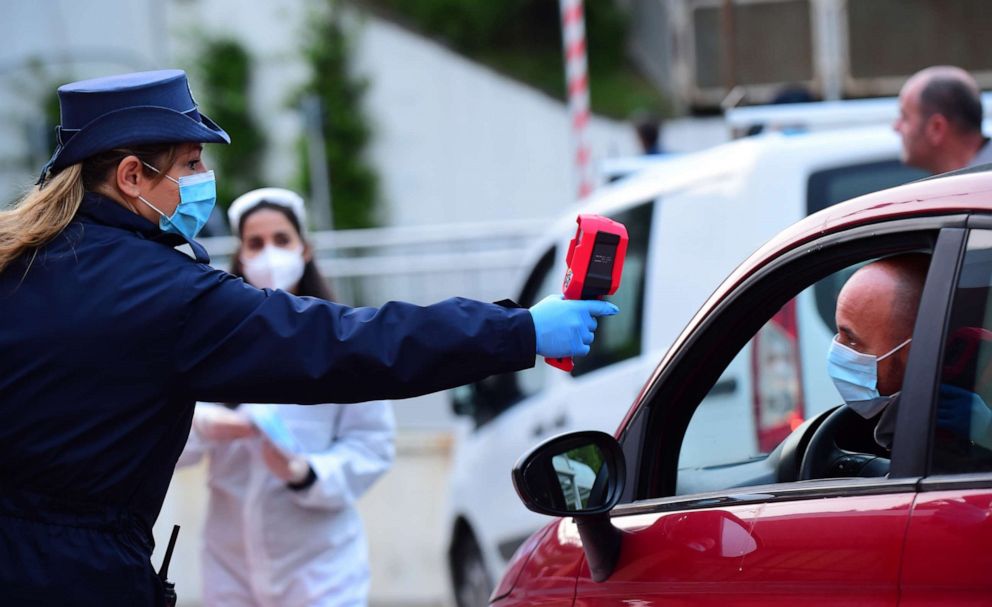
Then if all goes well, shops, museums and libraries will reopen on May 18, followed by bars, restaurants, cafes and beauty salons on June 1. Schools, however, will not reopen before September, Conte said.
Italy, one of the worst-hit countries in the coronavirus pandemic, has been under a nationwide lockdown since March 9. More than 197,000 people in the European country have been diagnosed with COVID-19, and over 26,000 have died, according to a count kept by Johns Hopkins University.
4:42 a.m.: UK Prime Minister Boris Johnson returns to work after recovery
U.K. Prime Minister Boris Johnson returned to work Monday after recovering from COVID-19.
A week after being admitted to a London hospital for worsening coronavirus symptoms, Johnson was discharged on April 12 and continued to recuperate at home. He had spent three days in intensive care
The prime minister delivered a statement Monday morning for the first time since his battle with the novel coronavirus.
"I'm sorry I've been away from my desk for much longer than I would have liked," Johnson told reporters outside his official residence and office in London, 10 Downing Street. "If this virus were a physical assailant, an unexpected and invisible mugger -- which I can tell you from personal experience it is -- then this is the moment when we have begun together to wrestle it to the floor."
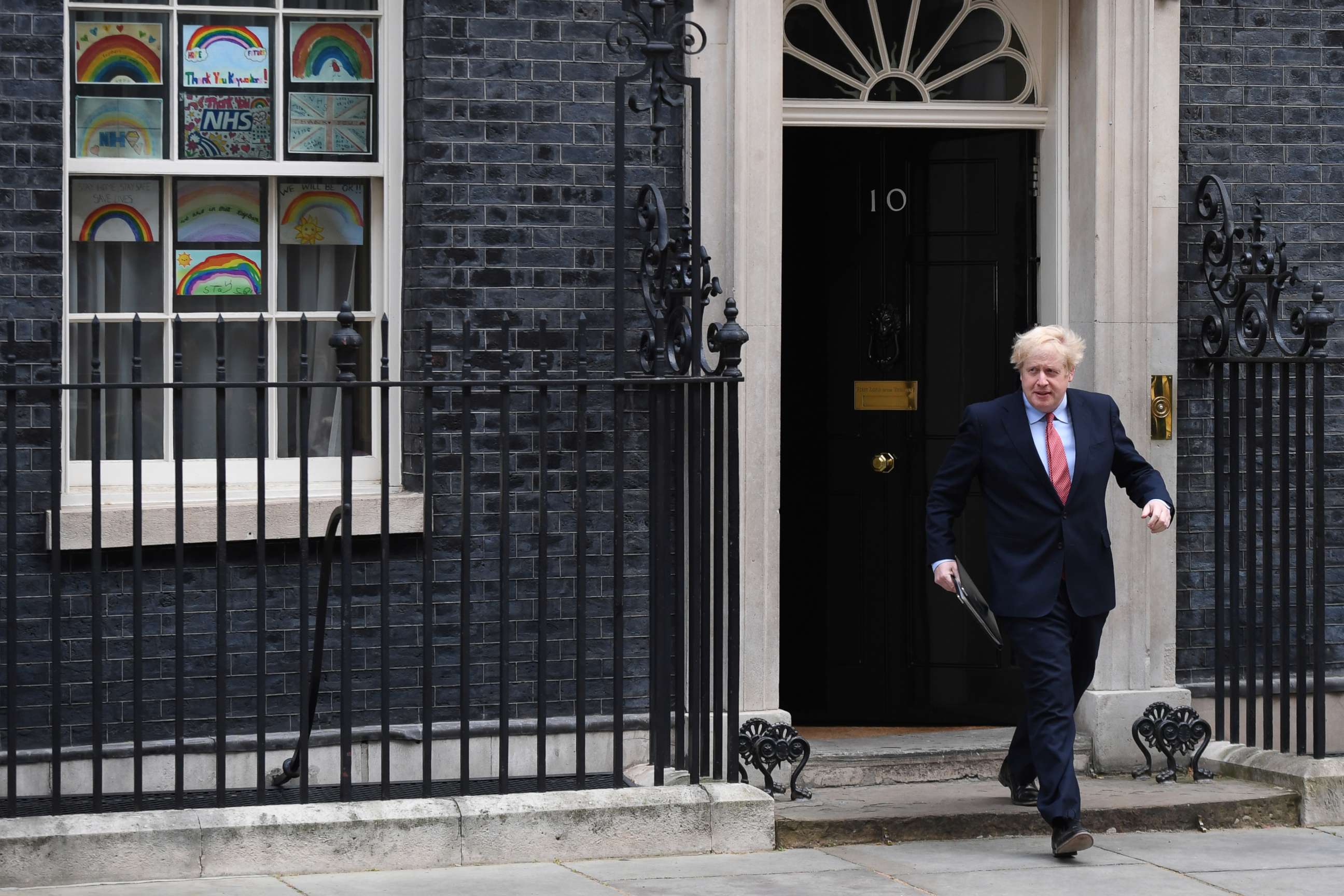
More than 154,000 people in the United Kingdom have been diagnosed with COVID-19, and at least 20,795 have died from the disease, according to a count kept by Johns Hopkins University. Johnson said the country is making progress in its efforts to control the virus outbreak and there are "real signs now that we are passing through the peak," with the number of admissions to National Health Service hospitals down and fewer COVID-19 patients in intensive care.
"And that's why we are now beginning to turn the tide," he said. "We collectively flattened the peak."
The prime minister acknowledged the impact the nationwide lockdown has had on the U.K. economy and its citizens, but he indicated it would be premature to start lifting the restrictions now.
"I can see the longterm consequences of lockdown as clearly as anyone," he said. "And yet we must also recognize the risk of a second spike, the risk of losing control of that virus."
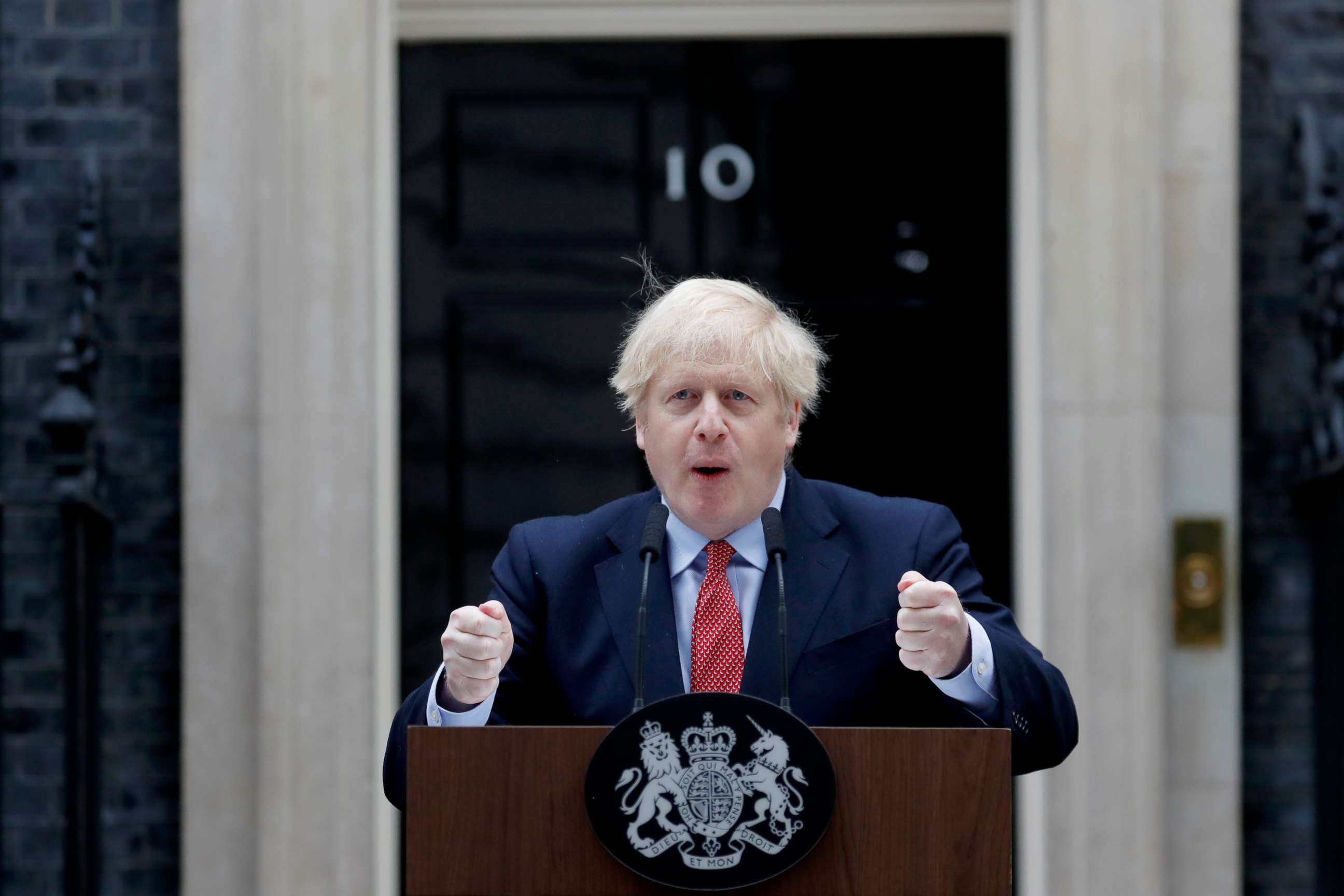
Johnson told reporters a new wave of infections and death would be an "economic disaster" for the country.
"I refuse to throw away all the effort and sacrifice of the British people and to risk a second major outbreak and huge loss of life and the overwhelming of the NHS," he said. "I ask you to contain your impatience because I believe we are coming now to the end of the first phase of this conflict."
Once officials are certain the first phase is over, the prime minister said, then it will be time to move onto the "second phase" in which the country continues to suppress the disease while beginning to gradually ease restrictions and reopen the economy.
"And in that process, difficult judgments will be made," he added, "and we simply cannot spell out now how fast or slow or even when those changes will be made, though clearly the government will be saying much more about this in the coming days."
ABC News' Christopher Donato, Ibtissem Guenfoud, Tom Llamas, Alina Lobzina and Phoebe Natanson contributed to this report.
